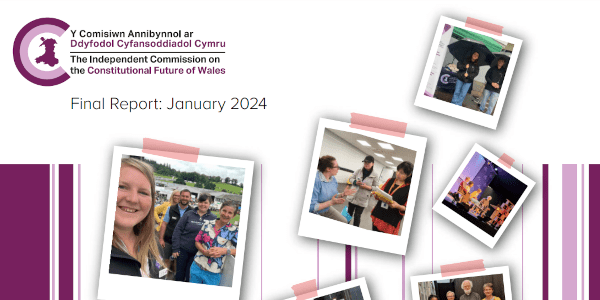“For the powerful, crimes are those that others commit.” – Noam Chomsky
(This blog post previously appeared in Common Weal’s weekly newsletter. Sign up for the newsletter here.)

The scenes coming out of Israel and Gaza are beyond abhorrent – and unlike wars of even just a few years ago, it’s playing out in real time on our own screens – atrocity careful curated by algorithm to keep us watching whatever social media platform we’re watching it on. The scenes this week of the UK Parliament almost collapsing into party-tribal anarchy over what flavour of “ceasefire” is the only one they could support has done the UK no favours in terms of its international reputation or its ability to be a responsible and reliable partner for peace when negotiations do finally, too late, begin to end the conflict, hopefully once and for all.
But the problems for the UK’s involvement in this run deeper. Before the chaos of the Opposition Day Motion debate in Parliament many of the detractors on social media attempted to delegitimise the concept of the debate saying that the UK simply had no possible influence over the situation and that the calls for a ceasefire were purely symbolic at best and grandstanding at worst.
However, the UK is not a purely symbolic bystander in this (not that should excuse those who are bystanders. As Desmond Tutu said, those who remain “neutral” in situations of injustice, side with the oppressor). The actions of the UK are deeply entwined with the humanitarian disaster unfolding in front of us.
For a start, the UK is the only country that has consistently abstained from United Nations level votes for a ceasefire in Gaza. These abstentions wouldn’t have swung the vote (which have been consistently vetoed by the USA regardless of their overwhelming result) but that abstention does provide the US the diplomatic cover of not being the only ones to oppose peace. That is a symbol that cannot be ignored.
More directly, the UK is openly providing military aid with the specific aim of supporting Israel and Israel has used UK infrastructure (including Scottish Government owned Prestwick airport) for military purposes. If the International Court of Justice does find that their observed plausible risk of genocide is borne out, then the UK must ask itself (or be asked by the court) to what extent that military assistance opens the UK to a charge of complicity in any war crimes that may have taken place.
Another problem is in the nature of international law itself as far too many countries – the UK included – appear to treat it as an inconvenience only to be obeyed when someone they don’t like breaks it.
With that in mind, I have been watching part of the case moving through the ICJ this week where Palestine has asked the court to make a ruling on whether or not the occupation of Palestine by Israel is illegal. In brief, the case is that while the occupation of foreign territory during wartime can be legal, the continued occupation of that territory beyond what is absolutely necessary both in scale, scope and time is unlawful and that those limits have been exceeded. The case can be watched here, with the UK’s own submission to the case due some time on Friday 23rd.
That submission will be interesting because Palestine themselves used the UK’s own actions as precedent in its evidence session on Monday. Specifically, the UK’s occupation (and forced deportation) of the Chagos Islands that was declared unlawful in 2021. The UK Government had been making some moves towards obeying the order to end the occupation but this itself appears to have reversed since the return of David Cameron to Government and who in January completely halted and cancelled talks and “ruled out” return of the islands to those the UK had forcibly removed from their homes claiming – despite evidence – that it was “not possible” for people to live there any more. If an occupier has left occupied land incapable of supporting those removed from it, then that is a problem for the occupier to fix.
There is a real danger of this story repeating itself in Gaza, with the continued destruction of homes and infrastructure and the sheer amount of unexploded ordinance surely hiding under the rubble of those homes making the prospect that people who have been forcibly displaced ever returning more remote and more unlikely by the day.
If and when the UK does decide that it can no longer stand by from or actively support atrocity, then it will have to reflect on the atrocities it has committed in turn. There will come a time to prosecute the war crimes committed over the course of the conflict in Israel and Palestine and each and every one of those crimes absolutely must be prosecuted whether committed by an enemy or an ally (or, indeed, by oneself). But the UK’s own actions are being held up to the world as an example of unacceptable behaviour and this matters because if it does not accept that behaviour as unacceptable by ourselves then we provide cover for those who wish to commit those same crimes on others. The world is judging others by our actions and we are falling woefully short of any measure that we should hold up as an example to aspire to.
Postscript:- The UK’s evidence to the ICJ quite brazenly started off with a statement to the effect of “We know you’re looking at our actions in Chagos – Please don’t judge Israel by our actions.”




